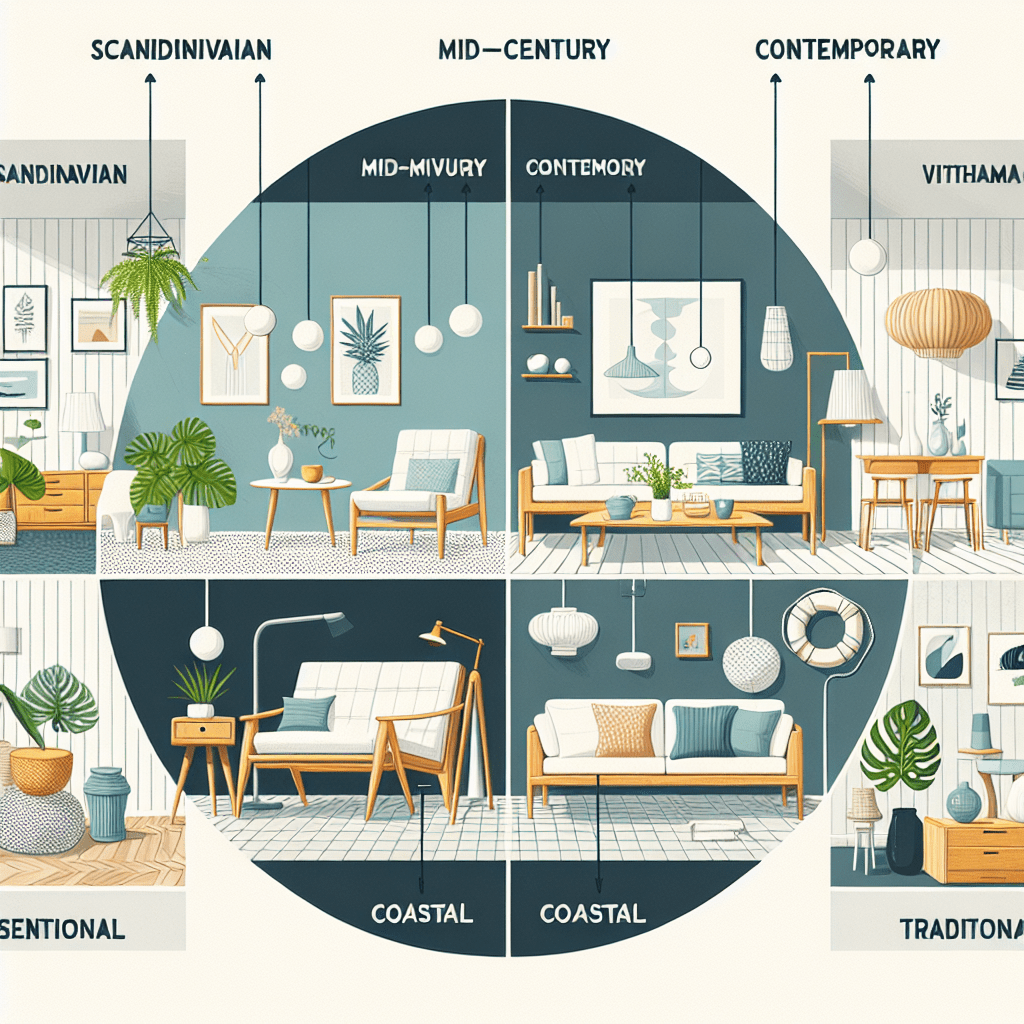When it comes to Interior Design, there are countless styles to choose from. From contemporary to traditional, bohemian to minimalist, the options can be overwhelming. However, mixing and matching different design styles can create a unique and personalized look for your home. In this article, we will explore the art of combining different Interior Design styles to create a cohesive and visually appealing space.
Understanding Interior Design Styles
Before diving into the world of mixing and matching Interior Design styles, it is important to have a basic understanding of the different styles available. Here are some popular Interior Design styles:
- Contemporary: Clean lines, neutral colors, and minimalistic approach.
- Traditional: Rich colors, ornate details, and classic furniture pieces.
- Bohemian: Eclectic mix of colors, patterns, and textures.
- Modern: Sleek and simple design, with a focus on functionality.
- Industrial: Exposed brick, metal accents, and a raw, unfinished look.
- Mid-Century Modern: Vintage-inspired design with a modern twist.
Benefits of Mixing and Matching Interior Design Styles
Combining different Interior Design styles can offer several benefits:
- Personalization: Mixing styles allows you to create a space that reflects your unique personality and taste.
- Visual Interest: Mixing different styles can add depth and visual interest to a room, making it more dynamic and engaging.
- Flexibility: By combining styles, you can easily update and refresh your space without having to completely overhaul your decor.
Tips for Mixing and Matching Interior Design Styles
There are a few key tips to keep in mind when mixing and matching Interior Design styles:
- Start with a Neutral Base: Begin with a neutral color palette as a base, then add pops of color and texture through accessories and accent pieces.
- Focus on Cohesion: Look for common elements between different styles, such as color schemes, materials, or patterns, to create a cohesive and harmonious look.
- Layer Different Textures: Mixing different textures, such as a plush rug with a leather sofa or a metal lamp with a wooden table, can add depth and dimension to a room.
- Experiment with Scale: Play with scale by mixing large statement pieces with smaller, more delicate accents to create visual contrast.
Common Design Styles Combinations
Here are some popular Interior Design style combinations to inspire you:
- Bohemian + Mid-Century Modern: Combine the eclectic, colorful elements of bohemian style with the clean lines and vintage-inspired pieces of mid-century modern design.
- Industrial + Contemporary: Pair the raw, industrial look of exposed brick and metal accents with the sleek, minimalist aesthetic of contemporary design.
- Traditional + Modern: Mix classic, ornate details and rich colors of traditional style with the simple, functional design of modern decor.
Conclusion
When it comes to Interior Design, the possibilities are endless. Mixing and matching different design styles can help you create a space that is truly unique and reflective of your personal style. By following the tips and inspiration provided in this article, you can confidently experiment with different design styles to create a cohesive and visually stunning home.
FAQs
Q: Can I mix and match any Interior Design styles?
A: While you can certainly mix and match different styles, it is important to do so with a thoughtful approach to ensure cohesion and harmony in your space.
Q: How do I know if my mixed and matched Interior Design styles work well together?
A: Look for common elements between the styles you are combining, such as color schemes, materials, or patterns. If these elements complement each other, chances are your mixed and matched styles will work well together.
TIP:
Don’t be afraid to experiment and take risks with mixing and matching Interior Design styles. Trust your intuition and have fun with the process to create a space that is truly one-of-a-kind.
#Guide #Mixing #Matching #Interior #Design #Styles

